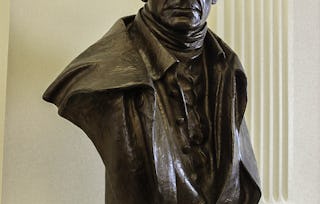The French Revolution was one of the most important upheavals in world history. This course examines its origins, course and outcomes.

The French Revolution

The French Revolution

Instructor: Peter McPhee
Access provided by Coursera Learning Team
28,706 already enrolled
324 reviews
Skills you'll gain
Details to know

Add to your LinkedIn profile
5 assignments
See how employees at top companies are mastering in-demand skills

There are 6 modules in this course
We begin this course with an introduction to the French Revolution. We will examine the social and institutional structures of the Old Regime. We will look at the main occupational groups and the roles of the First and Second estates (the clergy and nobility) in particular. We will also consider the relationship between Paris and the provinces in Old Regime France. Finally, you will be introduced to the Enlightenment and we will reflect on its significance and its possible revolutionary implications.
What's included
7 videos4 readings1 assignment1 discussion prompt
This week we look at the Revolution of 1789 and its causes. We will explore the tensions and conflicts that led to the crisis of the Old Regime. The focus will be on the Third Estate and the revolt of the bourgeoisie, the 'menu peuple' and the peasantry. We will look at the Declaration of the Rights of Man and citizen and you will be asked to reflect on its 'universal' significance.
What's included
6 videos1 reading1 assignment1 discussion prompt
Week three of this MOOC deals with the reforms introduced in 1789-91. We look at the institutional and administrative reorganisation of France. We will then consider three critical turning points of the Revolution: the Civil Constitution of the Clergy, the King's attempted flight in 1791 and the outbreak of war in 1792. Finally we will look at the fate of the King and the ultimate failure of the monarchy. You will be asked to reflect on the immediate effects and longer-term consequences of these events.
What's included
6 videos1 reading1 assignment1 discussion prompt
Week four deals with the crisis of the Republic in 1792-93. We will examine the conflicts and disunity within the National Convention and consider the balance between revolutionary and counter-revolutionary forces by mid-1793. We will explore the civil war in the Vendee region of Western France and attempt to make sense of the growing revolutionary violence. We will look at the origins of the 'Terror', its institutions and its ideology, and students will be asked to reflect more broadly on the role of violence during the Revolution.
What's included
10 videos1 reading1 assignment1 discussion prompt
This week we look at the ideology and culture of the 'Terror' and the nature of the Jacobin and sans-culottes alliance. We will consider possible explanations for the increasing intensity of revolutionary violence and ask whether such violence was a proportionate, emergency response to the growing counter-revolutionary threat. This module also deals with the end of the 'Terror', and the overthrow of Robespierre and the ensuing 'Thermidorian reaction'. Finally we look at the 'settlement' of 1795 and ask whether the Revolution was indeed over.
What's included
6 videos1 reading1 assignment2 discussion prompts
This final week of the course offers you the opportunity to reflect broadly on the significance of the Revolution. We begin by looking at Napoleon Bonaparte and the Restoration of the monarchy in 1814-15. We then consider the ways in which the revolutionary experience affected the lives of women and slaves. We will discuss the Revolution's global implications and ask whether or not 1789 can be understood more broadly, as part of an international 'Age of Revolution'. Finally we explore the 'minimalist' and 'maximalist' approaches to the significance of the Revolution and you will be asked to reflect on the impact of the Revolution on the lives of French citizens.
What's included
7 videos3 readings1 peer review1 discussion prompt
Instructor

Offered by
Why people choose Coursera for their career

Felipe M.

Jennifer J.

Larry W.

Chaitanya A.
Learner reviews
- 5 stars
83.02%
- 4 stars
13.88%
- 3 stars
2.16%
- 2 stars
0.92%
- 1 star
0%
Showing 3 of 324
Reviewed on May 18, 2018
I found the course really interesting and informative. It helps understanding of how recent political systems evolved.
Reviewed on Jun 4, 2017
A very good course very pedagogic and summarizing so well this time of changes for the French history.
Reviewed on Aug 11, 2017
Love. It. I will be on the lookout for more courses by McPhee.
Explore more from Arts and Humanities

University of Virginia

Sciences Po

Rutgers the State University of New Jersey

University of Virginia

